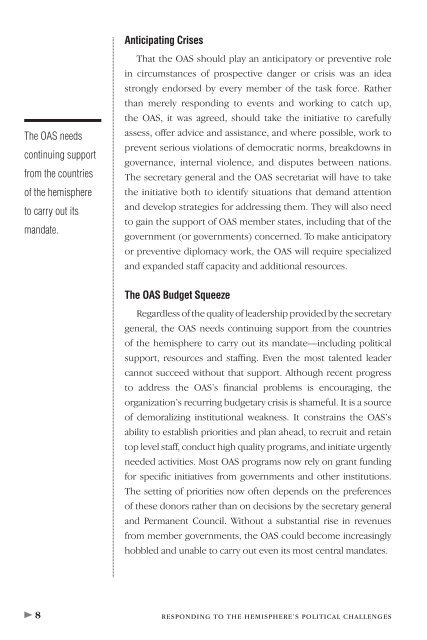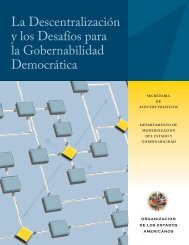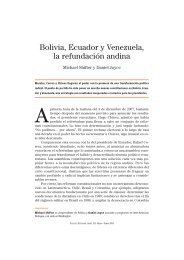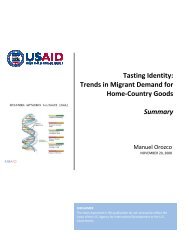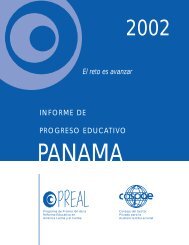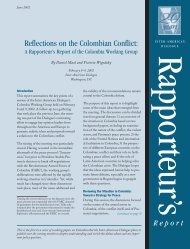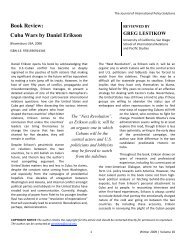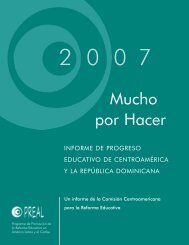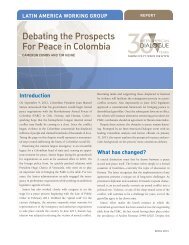View PDF Document - Inter-American Dialogue
View PDF Document - Inter-American Dialogue
View PDF Document - Inter-American Dialogue
Create successful ePaper yourself
Turn your PDF publications into a flip-book with our unique Google optimized e-Paper software.
Anticipating Crises<br />
The OAS needs<br />
continuing support<br />
from the countries<br />
of the hemisphere<br />
to carry out its<br />
mandate.<br />
That the OAS should play an anticipatory or preventive role<br />
in circumstances of prospective danger or crisis was an idea<br />
strongly endorsed by every member of the task force. Rather<br />
than merely responding to events and working to catch up,<br />
the OAS, it was agreed, should take the initiative to carefully<br />
assess, offer advice and assistance, and where possible, work to<br />
prevent serious violations of democratic norms, breakdowns in<br />
governance, internal violence, and disputes between nations.<br />
The secretary general and the OAS secretariat will have to take<br />
the initiative both to identify situations that demand attention<br />
and develop strategies for addressing them. They will also need<br />
to gain the support of OAS member states, including that of the<br />
government (or governments) concerned. To make anticipatory<br />
or preventive diplomacy work, the OAS will require specialized<br />
and expanded staff capacity and additional resources.<br />
The OAS Budget Squeeze<br />
Regardless of the quality of leadership provided by the secretary<br />
general, the OAS needs continuing support from the countries<br />
of the hemisphere to carry out its mandate—including political<br />
support, resources and staffing. Even the most talented leader<br />
cannot succeed without that support. Although recent progress<br />
to address the OAS’s financial problems is encouraging, the<br />
organization’s recurring budgetary crisis is shameful. It is a source<br />
of demoralizing institutional weakness. It constrains the OAS’s<br />
ability to establish priorities and plan ahead, to recruit and retain<br />
top level staff, conduct high quality programs, and initiate urgently<br />
needed activities. Most OAS programs now rely on grant funding<br />
for specific initiatives from governments and other institutions.<br />
The setting of priorities now often depends on the preferences<br />
of these donors rather than on decisions by the secretary general<br />
and Permanent Council. Without a substantial rise in revenues<br />
from member governments, the OAS could become increasingly<br />
hobbled and unable to carry out even its most central mandates.<br />
<br />
RESPONDING TO THE HEMISPHERE’S POLITICAL CHALLENGES


